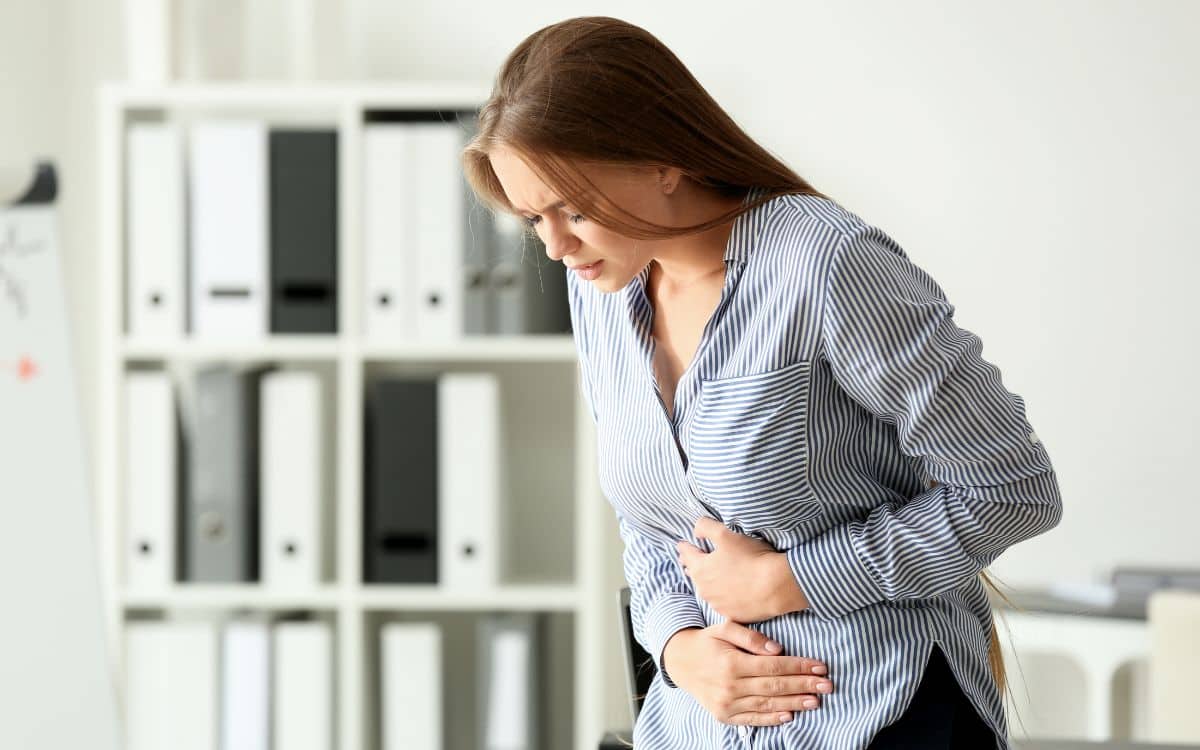Let’s talk about post operative chest and abdominal pain following gastric sleeve surgery.
Pain management is a significant component of postoperative care. The traumatic effect of the surgical incision, the various manipulations of internal organs during surgery, and some of the metabolic responses that accompany surgery are the main culprits in the occurrence of postoperative pain. Postoperative pain may also be a pointer to the development of certain complications.
Adequate pain management in the immediate postoperative period after gastric sleeve surgery will increase patient’s comfort and ensure early mobilization which will, in turn, prevent complications such as orthostatic pneumonia, deep vein thrombosis, pulmonary thromboembolism, and cardiovascular events.
Gastric Sleeve: Most Common Weight Loss Surgery
Gastric sleeve surgery has now become the most commonly performed weight loss surgery in the United States. The reason for this may not be unconnected to the relative safety of the surgery over other bariatric surgeries, its effectiveness regarding weight loss and reversal of the comorbidities and its lesser rate of postoperative complications including postoperative pain.
Postoperative complications can occur after gastric sleeve surgery as in other bariatric surgeries. However, most of them can be managed. While some are transient, others may be pointers to severe postoperative complications that require immediate evaluation and treatment. Post operative chest and abdominal pain may occur following gastric sleeve surgery due to some reasons which are highlighted below:
Abdominal Pain After Gastric Sleeve Surgery
This may be early or late, may be attributable to inadequate analgesia during the first postoperative period or may be a pointer to postoperative complication.
Gastric sleeve surgery is often done by a laparoscopic approach with single or multiple ports (small incisions of about 1cm) created to facilitate the introduction of the equipment into the abdominal cavity and for the removal of the resected stomach. You may begin to feel pain at the port sites after you have recovered from anesthesia. However, with the provision of opioid analgesics, the pain should subside, and by the third-day post-op, you should only require a minimal dose of a weaker painkiller.
Persistence of severe pain at the port site after the third-day post-op may be a pointer to surgical site infection or intra-abdominal abscess. This will require thorough evaluation with the use of active antibiotics, analgesics and possible drainage in the case of an abscess.
Pain in your stomach may also be the result of CO2, used to inflate the stomach during surgery. With CO2, your body will typically absorb it and reduce the pressure. Walking is important to help breakup the gas pain after surgery after surgery.
Shoulder pain, after surgery, is typically the result of gas pain putting pressure on nerves.
Other possible complications include ulcers and strictures after gastric sleeve surgery.
Chest Pain After Gastric Sleeve Surgery
Post-operative pneumonia is one of the causes of chest pain immediately after gastric sleeve surgery. This often results from a prolonged stay in bed. Prolong recumbent position leads to stasis of fluid in the lungs, thus creating an enabling environment for the growth and multiplication of bacteria. The symptoms include chest pain, cough, difficulty with breathing, fever, etc.
A plain chest radiograph will confirm the diagnosis. Treatment is with appropriate antibiotics based on microbiological analysis of the sputum. Early ambulation and incentive spirometry are the defensive options.
Heartburn
Another type of chest pain in patients who have had gastric sleeve surgery is heartburn. This is a burning sensation that is felt behind the breastbone. It is worse in a recumbent position. Heartburn in this group of patients is caused by gastroesophageal reflux disease (GERD).
This is a condition characterized by reflux of the acidic contents of the stomach into the lower part of the esophagus leading to irritation and erosion of the more moderate esophageal wall as the lining of the esophagus is not adapted for an acidic environment.
Although some obese individuals have this heartburn before surgery, gastric sleeve surgery can have variable effects. While some may have a reduction in the severity of their symptoms, others may have it worsened while those that never experienced heartburn before surgery may develop it after surgery.
Many explanations have been put forward as the cause of GERD in obese people and after gastric sleeve surgery. These include a hiatal hernia, relaxation of the esophageal sphincter, elevated intra-gastric pressure, damage to the esophageal sphincter during operation, etc.
Treatment for GERD
Treatment is with antacids and reducing gastric acid secretion with the use of proton pump inhibitors. Elevating the head of the bed while lying down may minimize the frequency of the symptoms. A gastric sleeve revision surgery may, however, be indicated if all these conservative methods failed.
Postoperative chest or abdominal pain is not uncommon after gastric sleeve surgery for the treatment of obesity. While some of them may be due to inadequate analgesia after the surgery and quickly treated with increased analgesic dosages, others may be a pointer to postoperative complications, some of which may be life-threatening if not promptly diagnosed and treated.

Pain After Gastric Sleeve Surgery
Pain after gastric sleeve surgery is typical and to be expected. However, pain should be decreasing after your operation. If you find your pain is increasing or staying the same, this might be a sign of potentially serious complications.
It is, therefore, necessary to report any abdominal or chest pain after gastric sleeve surgery to your surgeon for proper evaluation and possible treatment.





